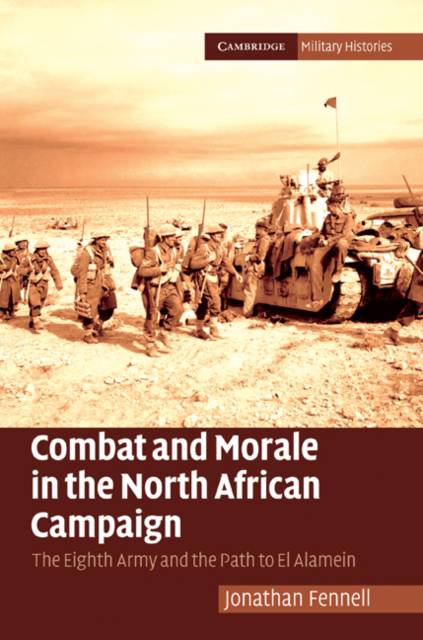
- Afhalen na 1 uur in een winkel met voorraad
- Gratis thuislevering in België vanaf € 30
- Ruim aanbod met 7 miljoen producten
- Afhalen na 1 uur in een winkel met voorraad
- Gratis thuislevering in België vanaf € 30
- Ruim aanbod met 7 miljoen producten
Zoeken
Combat and Morale in the North African Campaign
The Eighth Army and the Path to El Alamein
Jonathan Fennell
€ 194,95
+ 389 punten
Uitvoering
Omschrijving
Military professionals and theorists have long understood the relevance of morale in war. Montgomery, the victor at El Alamein, said, following the battle, that 'the more fighting I see, the more I am convinced that the big thing in war is morale'. Jonathan Fennell, in examining the North African campaign through the lens of morale, challenges conventional explanations for Allied success in one of the most important and controversial campaigns in British and Commonwealth history. He introduces new sources, notably censorship summaries of soldiers' mail, and an innovative methodology that assesses troop morale not only on the evidence of personal observations and official reports but also on contemporaneously recorded rates of psychological breakdown, sickness, desertion and surrender. He shows for the first time that a major morale crisis and stunning recovery decisively affected Eighth Army's performance during the critical battles on the Gazala and El Alamein lines in 1942.
Specificaties
Betrokkenen
- Auteur(s):
- Uitgeverij:
Inhoud
- Aantal bladzijden:
- 362
- Taal:
- Engels
- Reeks:
Eigenschappen
- Productcode (EAN):
- 9780521192705
- Verschijningsdatum:
- 28/03/2011
- Uitvoering:
- Hardcover
- Formaat:
- Ongenaaid / garenloos gebonden
- Afmetingen:
- 150 mm x 229 mm
- Gewicht:
- 698 g

Alleen bij Standaard Boekhandel
+ 389 punten op je klantenkaart van Standaard Boekhandel
Beoordelingen
We publiceren alleen reviews die voldoen aan de voorwaarden voor reviews. Bekijk onze voorwaarden voor reviews.











